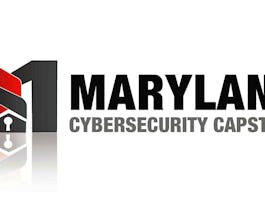In this course, we will study security and trust from the hardware perspective. Upon completing the course, students will understand the vulnerabilities in current digital system design flow and the physical attacks to these systems. They will learn that security starts from hardware design and be familiar with the tools and skills to build secure and trusted hardware.


Hardware Security
Taught in English
Some content may not be translated
33,303 already enrolled
(659 reviews)
Skills you'll gain
Details to know

Add to your LinkedIn profile
7 quizzes
See how employees at top companies are mastering in-demand skills


Earn a career certificate
Add this credential to your LinkedIn profile, resume, or CV
Share it on social media and in your performance review

There are 7 modules in this course
To learn hardware security, we first need to learn how hardware is designed. This week's lectures give an overview of the basics on digital logic design, which is a semester-long course for freshmen and sophomores in most schools. By no means we can cover all the materials. What we provide here is the minimal set that you need to understand about digital design for you to move on to learn hardware security.
What's included
7 videos2 readings1 quiz
As a hardware designer or a company, you want to protect your design intellectual property (IP) from being misused (by users, competitors, silicon foundry, etc). We will cover how you can build such protection during the design process which can be used as an evidence to support law enforcement protection. You are expected to understand the basic digital logic design knowledge covered in week 1. We will use several NP-hard problems as examples to illustrate the concepts of IP protection. These problems (graph vertex coloring problem and graph partitioning problem) will be introduced in the lecture and you do not need to know the concept of NP-complete.
What's included
6 videos1 reading1 quiz
This week you will learn the fundamentals about physical attacks: what are physical attacks, who are the attackers, what are their motivations, how can they attack your system (from hardware), what kind of skills/tools/equipment they should need to break your system, etc. You will also see what are the available countermeasures. You will learn how system security level and tamper resistance level are defined and some general guidelines on how to make your system secure by design. In the second part, you will learn a useful mathematical operation called modular exponentiation. It is widely used in modern cryptography but it is very computational expensive. You will see how security vulnerability might be introduced during the implementation of this operation and thus make the mathematically sound cryptographic primitives breakable. This will also be important for you to learn side channel attack next week.
What's included
7 videos1 reading1 quiz
This week, we focus on side channel attacks (SCA). We will study in-depth the following SCAs: cache attacks, power analysis, timing attacks, scan chain attacks. We will also learn the available countermeasures from software, hardware, and algorithm design.
What's included
5 videos1 reading1 quiz
This week we study hardware Trojan and trusted integrated circuit (IC) design. Hardware Trojans are additions or modifications of the circuit with malicious purposes. It has become one of the most dangerous and challenging threats for trusted ID design. We will give hardware Trojan taxonomies based on different criteria, explain how hardware Trojan work, and then talk about some of the existing approaches to detect them. We define trusted IC as circuit that does exactly what it is asked for, no less and no malicious more. We will illustrate this concept through the design space analysis and we will discuss several practical hardware Trojan prevention methods that can facilitate trust IC design.
What's included
5 videos1 reading1 quiz
This is the last week and we will cover some positive things on hardware security. We start with trust platform module (TPM), followed by physical unclonable functin (PUF), and FPGA-based system design. We conclude with a short discussion on the roles that hardware play in security and trust.
What's included
6 videos1 reading1 quiz
What's included
1 quiz
Instructor

Offered by
Recommended if you're interested in Computer Security and Networks

Yale University

University of Maryland, College Park
Why people choose Coursera for their career




Learner reviews
Showing 3 of 659
659 reviews
- 5 stars
60%
- 4 stars
23.03%
- 3 stars
9.69%
- 2 stars
4.54%
- 1 star
2.72%
New to Computer Security and Networks? Start here.

Open new doors with Coursera Plus
Unlimited access to 7,000+ world-class courses, hands-on projects, and job-ready certificate programs - all included in your subscription
Advance your career with an online degree
Earn a degree from world-class universities - 100% online
Join over 3,400 global companies that choose Coursera for Business
Upskill your employees to excel in the digital economy
Frequently asked questions
Access to lectures and assignments depends on your type of enrollment. If you take a course in audit mode, you will be able to see most course materials for free. To access graded assignments and to earn a Certificate, you will need to purchase the Certificate experience, during or after your audit. If you don't see the audit option:
The course may not offer an audit option. You can try a Free Trial instead, or apply for Financial Aid.
The course may offer 'Full Course, No Certificate' instead. This option lets you see all course materials, submit required assessments, and get a final grade. This also means that you will not be able to purchase a Certificate experience.
When you enroll in the course, you get access to all of the courses in the Specialization, and you earn a certificate when you complete the work. Your electronic Certificate will be added to your Accomplishments page - from there, you can print your Certificate or add it to your LinkedIn profile. If you only want to read and view the course content, you can audit the course for free.
If you subscribed, you get a 7-day free trial during which you can cancel at no penalty. After that, we don’t give refunds, but you can cancel your subscription at any time. See our full refund policy.




